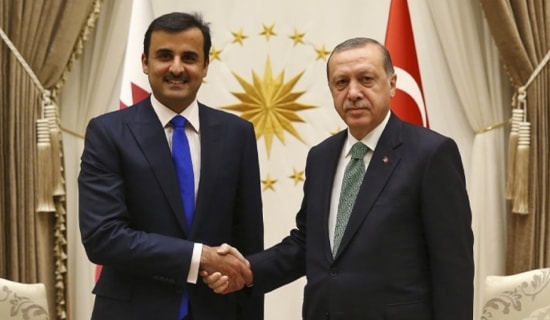In a June 6, 2015 article for the English-language UAE daily Gulf News, writer Dr. Khalifa Rashid Al-Sha'ali decried the Arab fondness for conspiracy theories, which he said is shared by the elites, the masses, and the media. For example, he wrote, the Arabs once thought that the "Zionist entity" and the U.S. were their supreme enemies, only to discover one day that it is actually possible to cooperate with them. Such conspiratorial thinking, he said, was responsible for many of the Arabs' defeats and problems - including the loss of Palestine in 1948 - because conspiracy theories provide a convenient excuse for Arab governments to explain away their failures. In addition, conspiratorial thinking also renders the Arabs unable to compromise with their enemies in order to secure their supreme interests, as other nations are able to do - such as the U.S. and Iran, for example, in their current relations. Al-Sha'ali concluded that the Arabs must find common ground with those they believe are their foes, in order to "spare [their] societies the scourge of wars, destruction, and invasions."
The following are excerpts from his article:[1]

Dr. Khalifa Rashid Al-Sha'ali (image: Gulfnews.com)
"I wonder when we Arabs will get rid of our 'conspiracy complex'! Since the First World War, we have believed that both the East and West are conspiring against us. The period following the Second World War set in our brains that all things evil that befell us were the result of the conspiracies hatched by others. As a result, Palestine was lost and its people were scattered. Some immigrated and others remained in occupied Palestine; some were forced to become citizens of the Zionist entity. Many wars and battles followed to chase Palestinians into neighboring countries or any other location where they might get political breathing space.
"We were convinced that the reason for all this was a conspiracy against us, and that our governments were completely innocent of all the woes that befell Arab communities. We were also sure that our governments were helpless ÔÇö just like us ÔÇö and unable to counter this conspiracy. After Palestine, other homelands were lost; Arabs were subjected to displacement, expulsion, killings, looting, loss of national identities and passports, and rights violations by others.
"We knew who our enemy was at one stage of history. We were certain, that the spearhead was the Zionist entity and all those who supported it. Recently, we discovered that those we considered the enemy and its spearhead were not our enemies. It was proved to us that we must have been dreaming, and that the alleged enemy is actually a friend which many Arab countries cooperate with! In fact, the reality and existing cooperation at all levels and in all fields between Arab systems of government and the United States ÔÇö for example ÔÇö reinforce the fact that the US is not an enemy of Arabs and Muslims [either].
"If, theoretically, we accept that there are conspiracies against us, the question that arises is: What have our leaders and political elites done to rid our countries and societies of the problems caused by these conspiracies? Or have they simply surrendered? Assuming this is true, Palestinians will suffer along with Somalis, Iraqis, Syrians, Yemenis and others.
"The alternative assumption is that the conspiracy is a figment of our imagination, a coat hanger upon which Arabs hang all their failures. Many of our intellectuals and political elites believed in the farce and so did our official and private media because the ÔÇÿmasses' demanded it. Unfortunately, our media is used to just delivering what the masses demand; it has never been a leader of the masses and has never guided the political discourse.
"The truth is that at the individual, political, socioeconomic and cultural levels, we are in conflict with ourselves and others. We create demons in order to fight and curse them. We don't know how to solve differences through dialogue to reach common ground with those who we believe are our foes, in order to spare our societies the scourge of wars, destruction and invasions. Our biggest mistake is that we do not differentiate between the existential conflicts and conflicts over interests. We don't know what we want from the other, and what the other wants from us. We are blind to the fact that we are living in a changing world, where interests change every second. We don't realize that as a result of this ignorance we will be unable to make the right decisions. Countries' policies are not driven by emotions but by the interests of their people. If necessary, they will sacrifice the other if it is in the interest of their national security.
"If we apply this understanding to our relationship with America and Iran, we can compromise on some interests in discussions with these two countries that are against us, as both countries threaten our existence as Arabs. If this understanding is applied to the relationship between America and Iran, then we will understand that the problems between these two countries are interest-related and that both sides understand precisely what they want from the other. Their compromises are in accordance with their interests, and for the sake of their interests they are fully prepared to sacrifice us because we simply do not know what to compromise on; we have played all our cards and no longer have anything to offer as a compromise. Thus, the meeting at Camp David last month was a painful conclusion to our relationship with a power whose friendship we suspect but cannot guarantee our existence without."
Endnotes:
[1] Gulfnews.com, June 6, 2015.




